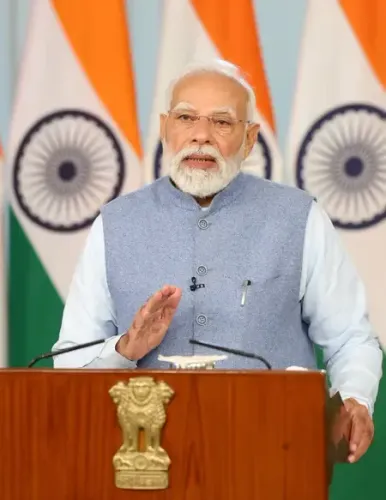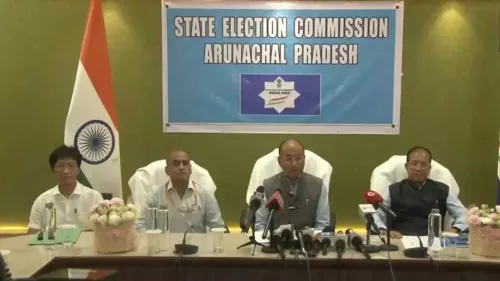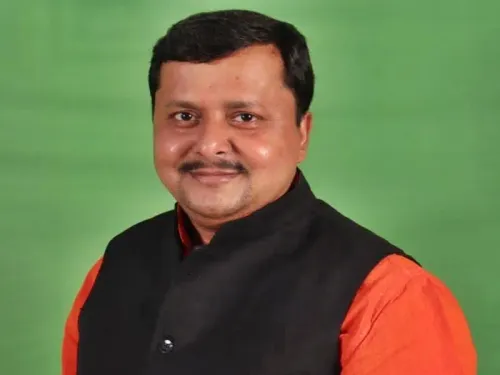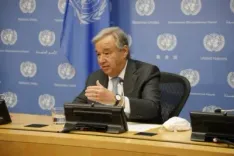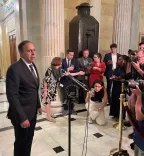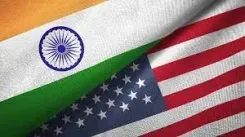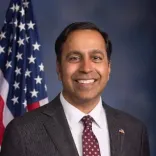Government to Further Decrease Reliance on Imported Crude Oil and Encourage Domestic Production
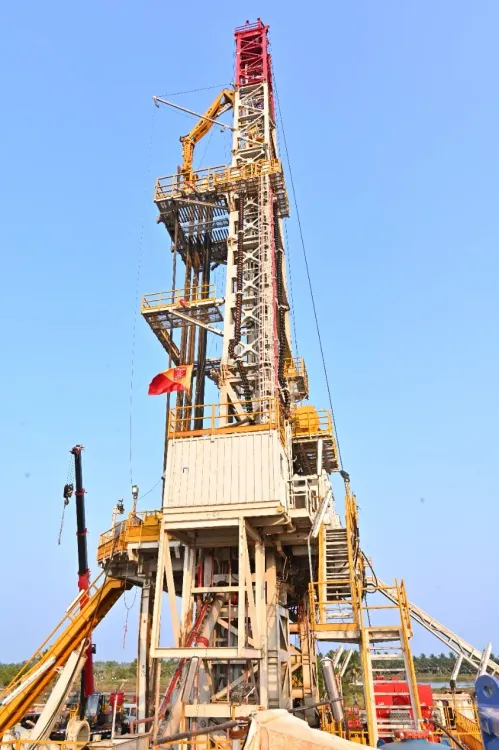
Synopsis
Key Takeaways
- Government initiatives to reduce imported crude oil dependency.
- Central excise duty cuts benefiting consumers.
- State governments' VAT reductions for relief.
- Plans for increased ethanol blending in petrol.
- Subsidized LPG for PM Ujjwala Yojana beneficiaries.
New Delhi, March 10 (NationPress) The Indian government has implemented several initiatives aimed at minimizing reliance on imported crude oil while enhancing domestic oil and gas production, as reported to Parliament on Monday.
Minister of State for Petroleum and Natural Gas, Suresh Gopi, disclosed in a written response to the Rajya Sabha that various actions have been undertaken by the government along with public sector undertakings (PSUs) and oil marketing companies (OMCs) to tackle challenges associated with fuel pricing, the repercussions of international crude oil rates, and to alleviate the financial strain on consumers.
The central government reduced the central excise duty by ₹13 per litre for petrol and ₹16 per litre for diesel in two phases during November 2021 and May 2022, with these reductions fully benefiting consumers.
In addition, several state governments have also lowered VAT rates to offer relief to the public. In March 2024, OMCs decreased the retail prices of petrol and diesel by ₹2 per litre each nationwide, the minister mentioned.
The government has also shielded the general public from soaring international prices by diversifying the crude import portfolio, invoking the Universal Service Obligation provisions to guarantee the availability of petrol and diesel in the domestic market, and enhancing the blending of ethanol in petrol, among other measures.
Recently, Union Petroleum and Natural Gas Minister, Hardeep Singh Puri, indicated that India is contemplating increasing its target for blending ethanol with gasoline to over 20 percent.
Furthermore, the intra-state freight rationalization by PSU OMCs has proven advantageous for consumers in remote regions within states, contributing to a reduction in the price disparity of petrol and diesel within those states.
More than 10.33 crore beneficiaries of the PM Ujjwala Yojana across the nation have access to subsidized domestic LPG cylinders.
Some state governments are also providing additional subsidies for LPG refills, absorbing the extra costs from their respective budgets.
Oil and Gas PSUs have already set target dates for achieving Net Zero status and have devised plans accordingly.
The government has also launched the Pradhan Mantri JI-VAN (Jaiv Indhan - Vatavaran Anukool Fasal Awashesh Nivaran) Yojana, designed to offer financial assistance for integrated bio-ethanol projects aimed at establishing advanced biofuel projects in the country utilizing lignocellulosic biomass and other renewable feedstocks.


